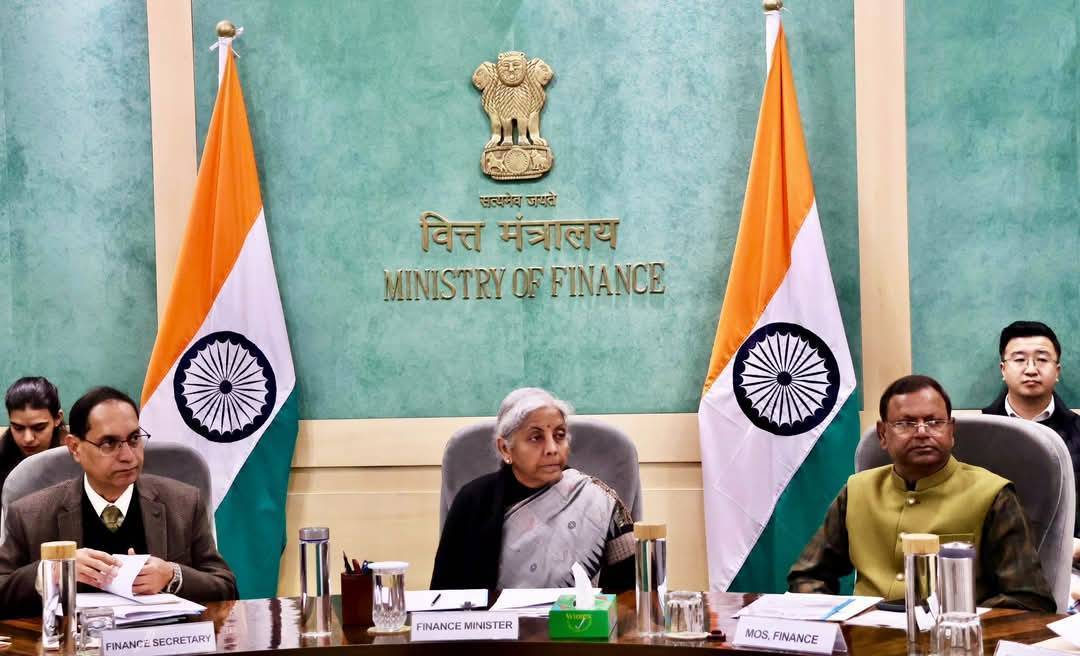As Finance Minister Nirmala Sitharaman prepares to present the Union Budget 2025 on February 1, real estate developers are anticipating policy measures that could enhance project viability and streamline regulatory processes. Rising construction costs, high borrowing rates, and compliance challenges have put pressure on developers, particularly in the mid-range and affordable housing segments. The upcoming budget is seen as an opportunity to introduce incentives, tax relief, and financing support that could ease liquidity concerns and accelerate project execution.
Industry stakeholders believe that targeted policy interventions, such as lower GST on raw materials, improved access to credit, and faster approval mechanisms could stimulate supply, encourage new developments, and strengthen housing availability. A well-structured budget could drive growth in the sector and create a more favorable business environment for developers.
Expectations from Budget 2025
Homebuyers and real estate stakeholders anticipate several key measures in the budget to streamline the home-buying process, reduce financial strain, and enhance the accessibility of affordable housing. Some of the major areas of concern include:
Strengthening Affordable Housing Initiatives
The government’s flagship housing scheme, the Pradhan Mantri Awas Yojana (PMAY-U), has played a crucial role in promoting homeownership. Increasing budget allocations for this scheme and extending loan-linked subsidies could benefit first-time buyers. Additionally, revising the eligibility criteria and expanding its scope could help a larger section of the population access housing assistance.
GST Simplification for Under-Construction Homes
The current Goods and Services Tax (GST) structure for under-construction properties has been a point of concern for developers and buyers alike. Ambiguities and tax complexities often lead to increased project costs and buyer hesitancy. A more transparent and streamlined tax regime would encourage smoother transactions and potentially reduce the financial burden on buyers.
Stamp Duty Rationalization
In many states, stamp duty charges add a significant cost to property purchases, often reaching 8-9% of the total property value. Homebuyers have been advocating for a uniform and reduced stamp duty, particularly for properties priced up to Rs 1.5 crore. A lower rate could make housing more affordable and stimulate demand, particularly in urban and semi-urban areas.
Expanding REITs and InvITs
Real Estate Investment Trusts (REITs) and Infrastructure Investment Trusts (InvITs) have brought increased transparency and liquidity to the real estate sector. However, further policy incentives, such as reducing the Dividend Distribution Tax (DDT) and offering more benefits to retail investors, could encourage wider adoption and investment in these instruments.
Support for Rental Housing
With rising property prices, rental housing has become an essential alternative for many, particularly in metropolitan areas. However, high rental costs and inadequate policy support remain significant challenges. Measures that promote affordable rental housing, including tax benefits for developers and incentives for rental housing projects, could address the accommodation needs of urban migrants and low-income groups.
Increasing Tax Deductions on Home Loans
One of the most anticipated changes in Budget 2025 is an increase in tax deduction limits for home loans. Currently, under Section 80C of the Income Tax Act, homebuyers can claim deductions of up to Rs 1.5 lakh on principal repayment, while Section 24(b) allows for a Rs 2 lakh exemption on interest payments for self-occupied properties. Raising these limits could provide significant financial relief to homebuyers, making homeownership more feasible for a broader segment of the population.
Encouraging NRI Investment in Real Estate
Non-Resident Indians (NRIs) have shown a growing interest in India’s real estate market. Easing investment regulations and reducing tax burdens on property transactions could attract more foreign capital, boosting liquidity and growth in the sector. Simplifying repatriation rules and providing additional incentives for NRI homebuyers could further strengthen their participation in the Indian real estate market.
Streamlining Project Approvals with a Single-Window Clearance System
Delays in project approvals have been a longstanding issue for real estate developers. A single-window clearance system for real estate projects could significantly reduce construction timelines and lower costs. This would not only help developers complete projects on time but also make housing more affordable by cutting down on unnecessary delays and associated financial burdens.
Way Forward
The Union Budget 2025 is expected to play a critical role in shaping the future of the real estate sector. Developers are looking for policy measures that ease regulatory burdens, improve access to credit, and reduce construction costs. A balanced approach addressing taxation, financing, and industry-specific incentives could create a more favorable environment for project execution and investment.
As the budget announcement nears, all eyes will be on the government’s stance on GST rationalization, input cost relief, and streamlined approval processes. If the expected measures are implemented, they could provide much-needed support to developers, enabling faster project completion and increased investment in the sector.
Image source: Facebook









.png)